This work compiled and assessed existing sustainability frameworks in agriculture, highlighting the complexity of Integrated Sustainability Assessment methods and the variability in their characteristics.
Policy
Taskforce findings were published in four reports: The taskforce Synthesis Report: Extreme weather and resilience of the global food system; Annex A: Climate and global crop production shocks; Annex B: Review of the responses to food production shocks; Annex C: Country Level Impacts of Global Grain Production Shocks.
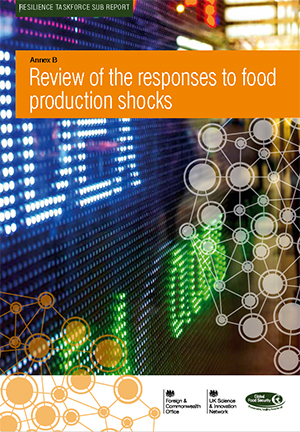
Resilience taskforce sub report – Annex B: Review of the responses to food production shocks
Impacts of extreme weather-related food production shocks can be heightened by protective policy responses that further amplify price volatility and market shocks. Through data analysis, literature reviews and expert interviews this report puts forward potential government and market responses to food production shocks in major crops that might create a more resilient food system.
(You can view PDF documents by downloading a PDF reader. We recommend using Google Chrome or Mozilla Firefox web browsers.)
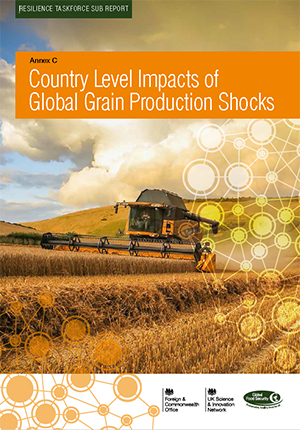
Resilience taskforce sub report – Annex C: Country Level Impacts of Global Grain Production Shocks
This report examines the impacts of potential extreme weather-related shocks to global grain production at a country level. Key recommendations include encouraging countries to take measures to reduce their exposure to grain production shocks, and more public-private partnerships to play a role in lessening the impact.
(You can view PDF documents by downloading a PDF reader. We recommend using Google Chrome or Mozilla Firefox web browsers.)
The network initiates under the auspices of the OECD Global Science Forum with eight signatory countries as full members.
In 2014, GFS established a UK-US Taskforce on Resilience of the Agri-Food System to Extreme Weather Events in collaboration with the Foreign and Commonwealth Office (FCO) and Science and Innovation Network (SIN).
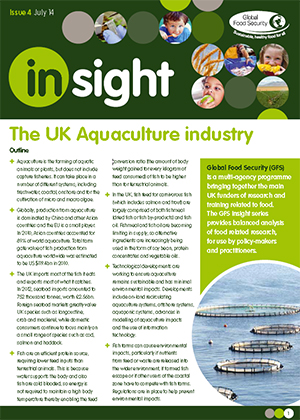
Insight, issue four: The UK aquaculture industry
GFS Insight aims to offer a balanced and interdisciplinary representation of the current state of knowledge in a particular area relating to food security. This issue considers current aquaculture practice, both globally and in the UK, and routes by which scientific research is improving aquaculture productivity and sustainability.
(You can view PDF documents by downloading a PDF reader. We recommend using Google Chrome or Mozilla Firefox web browsers.)
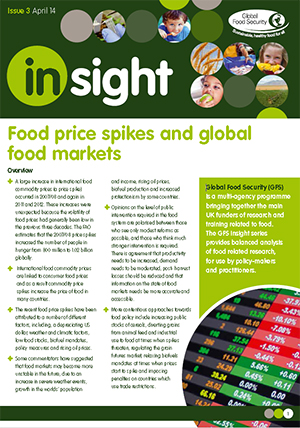
Insight, issue three: Food price spikes and global food markets
GFS Insight aims to offer a balanced and interdisciplinary representation of the current state of knowledge in a particular area relating to food security. This issue explores the factors behind recent global food price spikes, and potential routes for improving food price stability.
(You can view PDF documents by downloading a PDF reader. We recommend using Google Chrome or Mozilla Firefox web browsers.)
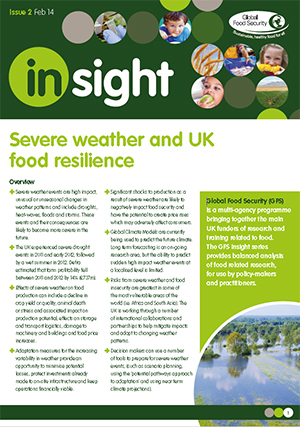
Insight, issue two: Severe weather and UK food resilience
GFS Insight aims to offer a balanced and interdisciplinary representation of the current state of knowledge in a particular area relating to food security. This issue provides an overview of the increasing threat of severe weather events throughout the food supply chain, and potential methods for mitigating these risks.
(You can view PDF documents by downloading a PDF reader. We recommend using Google Chrome or Mozilla Firefox web browsers.)
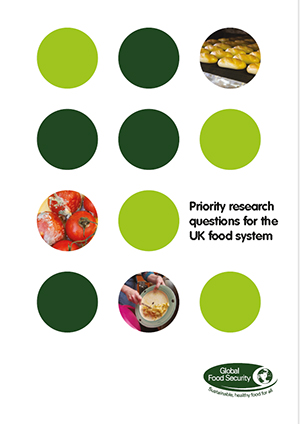
Priority research questions for the UK food system
This report highlights the key research challenges that could improve the UK food system’s efficiency and effectiveness in a global context. This GFS-led exercise developed a list of the top 100 priority research questions for the UK food system based on perspectives of a variety of stakeholders, including food industry, retail, government, wider policy, NGOs and academia.
(You can view PDF documents by downloading a PDF reader. We recommend using Google Chrome or Mozilla Firefox web browsers.)
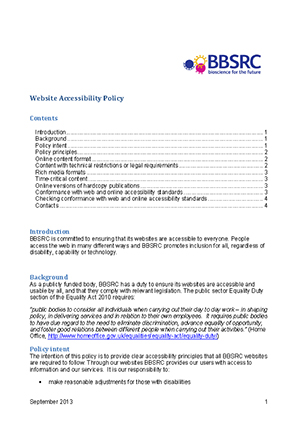
BBSRC website accessibility policy
BBSRC is committed to ensuring that its websites are accessible to everyone. People access the web in many different ways and BBSRC promotes inclusion for all, regardless of disability, capability or technology.
(You can view PDF documents by downloading a PDF reader. We recommend using Google Chrome or Mozilla Firefox web browsers.)


